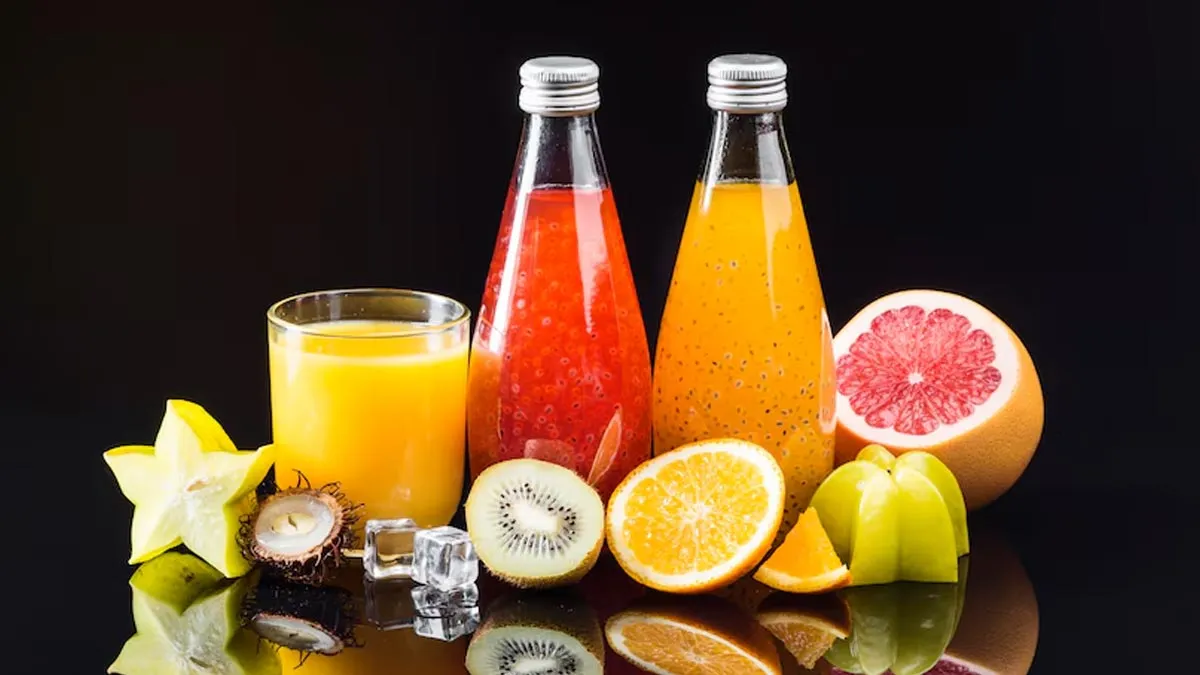
For years, health experts have advised cutting back on sugary sodas, but a new study reveals that even seemingly healthier alternatives, like fruit juices, might come with a surprising risk. According to findings published in the Journal of Stroke, excessive consumption of fruit drinks, in addition to carbonated beverages, could significantly raise the risk of acute stroke. Conducted under the Interstroke study, one of the largest and most comprehensive analyses on stroke risk factors, this research challenges our perception of sugary drinks and highlights the importance of moderation—even when it comes to fruit-based beverages.
Table of Content:-
Study’s Findings on Sugary Beverages
The Interstroke study looked at the beverage consumption patterns of individuals with acute stroke, comparing them to a control group without a history of stroke. Researchers observed a notable correlation between frequent consumption of sugary drinks—such as carbonated sodas and fruit drinks—and an increased likelihood of stroke. The study suggests that the high sugar content in these beverages could trigger a series of metabolic changes in the body that lead to health complications, including inflammation, increased blood pressure, and insulin resistance, all of which are known risk factors for stroke.
The results of this study are consistent with prior research on the harmful effects of excessive sugar intake. When consumed in large amounts, sugary drinks can contribute to arterial stiffness and the buildup of plaque in blood vessels, two conditions that increase the risk of stroke. The findings bring new awareness to the impact of fruit drinks, which are often viewed as a "healthier" option but can contain just as much, if not more, sugar than soda.
Also read: World Stroke Day 2024: Understanding The Overlooked Gender Gaps In Stroke Care
Why Are Fruit Juices Risky?
Fruit juices have long been a part of health-conscious diets, but not all fruit drinks are created equal. Packaged fruit juices, in particular, often contain added sugars and lack fiber, making them less beneficial than whole fruits. Even freshly squeezed juices, while devoid of added sugars, still concentrate the natural sugars found in fruit, which can lead to a spike in blood sugar levels. When these levels frequently fluctuate, it increases the risk of metabolic syndrome—a cluster of conditions including high blood sugar, high blood pressure, and abnormal cholesterol levels—which, in turn, raises the likelihood of a stroke.
Moreover, fruit juices, especially in large quantities, can lead to weight gain, another risk factor for stroke. A high-sugar diet contributes to obesity and promotes the development of visceral fat, which has been associated with an increased risk of cardiovascular disease and stroke.
The Role of Water as a Safer Choice
One of the study’s key findings was the beneficial impact of water consumption. Unlike sugary beverages, drinking water was associated with a reduced risk of stroke, suggesting it as the healthiest beverage option for overall cardiovascular health. Water hydrates the body without adding calories or sugars, and it supports vital bodily functions, including regulating blood pressure and maintaining circulation.
Also read: Why Are Chances Of A Stroke High In The Bathroom? How To Prevent
Tips for Reducing Sugary Beverage Intake
Switching from sugary drinks to healthier alternatives can be challenging but is essential for reducing stroke risk. Here are some practical tips:
Opt for Whole Fruits: Instead of reaching for fruit juice, consume whole fruits. The fiber in whole fruits slows down sugar absorption, providing a steady release of energy without a rapid blood sugar spike.
Infuse Your Water: If plain water feels dull, try adding a splash of flavor by infusing it with fruits like lemon, cucumber, or berries. This can provide a refreshing taste without added sugars.
Limit Packaged Juices: If you enjoy fruit juices, consider limiting packaged varieties and keep portions in check. Diluting juice with water can help cut down on sugar intake.
Choose Herbal Teas: Unsweetened herbal teas make a great alternative, providing hydration with minimal calories and no added sugars.
Conclusion
This latest study shines a light on the risks of consuming even supposedly healthy drinks in excess. While occasional fruit juice won’t cause immediate harm, frequent and excessive intake can lead to elevated stroke risk. Opting for water as your primary drink can be a simple yet effective strategy to support long-term cardiovascular health.
Also watch this video
How we keep this article up to date:
We work with experts and keep a close eye on the latest in health and wellness. Whenever there is a new research or helpful information, we update our articles with accurate and useful advice.
Current Version